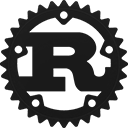1 2 3 4 5 6 7 8 9 10 11 12 13 14 15 16 17 18 19 20 21 22 23 24 25 26 27 28 29 30 31 32 33 34 35 36 37 38 39 40 41 42 43 44 45 46 47 48 49 50 51 52 53 54 55 56 57 58 59 60 61 62 63 64 65 66 67 68 69 70 71 72 73 74 75 76 77 78 79 80 81 82 83 84 85 86 87 88 89 90 91 92 93 94 95 96 97 98 99 100 101 102 103 104 105 106 107 108 109 110 111 112 113 114 115 116 117 118 119 120 121 122 123 124 125 126 127 128 129 130 131 132 133 134 135 136 137 138 139 140 141 142 143 144 145 146 147 148 149 150 151 152 153 154 155 156 157 158 159 160 161 162 163 164 165 166 167 168 169
//! eframe - the egui framework crate
//!
//! If you are planning to write an app for web or native,
//! and are happy with just using egui for all visuals,
//! Then `eframe` is for you!
//!
//! To get started, look at <https://github.com/emilk/eframe_template>.
//!
//! You write your application code for [`epi`] (implementing [`epi::App`]) and then
//! call from [`crate::run_native`] your `main.rs`, and/or call `eframe::start_web` from your `lib.rs`.
//!
//! `eframe` is implemented using [`egui_web`](https://github.com/emilk/egui/tree/master/egui_web) for web and
//! [`egui_glium`](https://github.com/emilk/egui/tree/master/egui_glium) or [`egui_glow`](https://github.com/emilk/egui/tree/master/egui_glow) for native.
//!
//! ## Usage, native:
//! ``` no_run
//! use eframe::{epi, egui};
//!
//! #[derive(Default)]
//! struct MyEguiApp {}
//!
//! impl epi::App for MyEguiApp {
//! fn name(&self) -> &str {
//! "My egui App"
//! }
//!
//! fn update(&mut self, ctx: &egui::CtxRef, frame: &epi::Frame) {
//! egui::CentralPanel::default().show(ctx, |ui| {
//! ui.heading("Hello World!");
//! });
//! }
//!}
//!
//! fn main() {
//! let app = MyEguiApp::default();
//! let native_options = eframe::NativeOptions::default();
//! eframe::run_native(Box::new(app), native_options);
//! }
//! ```
//!
//! ## Usage, web:
//! ``` no_run
//! #[cfg(target_arch = "wasm32")]
//! use wasm_bindgen::prelude::*;
//!
//! /// Call this once from the HTML.
//! #[cfg(target_arch = "wasm32")]
//! #[wasm_bindgen]
//! pub fn start(canvas_id: &str) -> Result<(), eframe::wasm_bindgen::JsValue> {
//! let app = MyEguiApp::default();
//! eframe::start_web(canvas_id, Box::new(app))
//! }
//! ```
// Forbid warnings in release builds:
#![cfg_attr(not(debug_assertions), deny(warnings))]
#![forbid(unsafe_code)]
#![warn(
clippy::all,
missing_docs,
rust_2018_idioms,
rustdoc::missing_crate_level_docs
)]
#![allow(clippy::needless_doctest_main)]
pub use {egui, epi};
#[cfg(not(target_arch = "wasm32"))]
pub use epi::NativeOptions;
// ----------------------------------------------------------------------------
// When compiling for web
#[cfg(target_arch = "wasm32")]
pub use egui_web::wasm_bindgen;
/// Install event listeners to register different input events
/// and start running the given app.
///
/// For performance reasons (on some browsers) the egui canvas does not, by default,
/// fill the whole width of the browser.
/// This can be changed by overriding [`epi::Frame::max_size_points`].
///
/// ### Usage, native:
/// ``` no_run
/// fn main() {
/// let app = MyEguiApp::default();
/// let native_options = eframe::NativeOptions::default();
/// eframe::run_native(Box::new(app), native_options);
/// }
/// ```
///
/// ### Web
/// ``` no_run
/// #[cfg(target_arch = "wasm32")]
/// use wasm_bindgen::prelude::*;
///
/// /// This is the entry-point for all the web-assembly.
/// /// This is called once from the HTML.
/// /// It loads the app, installs some callbacks, then returns.
/// /// You can add more callbacks like this if you want to call in to your code.
/// #[cfg(target_arch = "wasm32")]
/// #[wasm_bindgen]
/// pub fn start(canvas_id: &str) -> Result<(), eframe::wasm_bindgen::JsValue> {
/// let app = MyEguiApp::default();
/// eframe::start_web(canvas_id, Box::new(app))
/// }
/// ```
#[cfg(target_arch = "wasm32")]
pub fn start_web(canvas_id: &str, app: Box<dyn epi::App>) -> Result<(), wasm_bindgen::JsValue> {
egui_web::start(canvas_id, app)?;
Ok(())
}
// ----------------------------------------------------------------------------
// When compiling natively
/// Call from `fn main` like this: `
/// ``` no_run
/// use eframe::{epi, egui};
///
/// #[derive(Default)]
/// struct MyEguiApp {}
///
/// impl epi::App for MyEguiApp {
/// fn name(&self) -> &str {
/// "My egui App"
/// }
///
/// fn update(&mut self, ctx: &egui::CtxRef, frame: &epi::Frame) {
/// egui::CentralPanel::default().show(ctx, |ui| {
/// ui.heading("Hello World!");
/// });
/// }
///}
///
/// fn main() {
/// let app = MyEguiApp::default();
/// let native_options = eframe::NativeOptions::default();
/// eframe::run_native(Box::new(app), native_options);
/// }
/// ```
#[cfg(not(target_arch = "wasm32"))]
#[cfg(feature = "egui_glium")]
pub fn run_native(app: Box<dyn epi::App>, native_options: epi::NativeOptions) -> ! {
egui_glium::run(app, &native_options)
}
/// Call from `fn main` like this: `
/// ``` no_run
/// fn main() {
/// let app = MyEguiApp::default();
/// let native_options = eframe::NativeOptions::default();
/// eframe::run_native(Box::new(app), native_options);
/// }
/// ```
#[cfg(not(target_arch = "wasm32"))]
#[cfg(not(feature = "egui_glium"))] // make sure we still compile with `--all-features`
#[cfg(feature = "egui_glow")]
pub fn run_native(app: Box<dyn epi::App>, native_options: epi::NativeOptions) -> ! {
egui_glow::run(app, &native_options)
}
// disabled since we want to be able to compile with `--all-features`
// #[cfg(all(feature = "egui_glium", feature = "egui_glow"))]
// compile_error!("Enable either egui_glium or egui_glow, not both");
#[cfg(not(any(feature = "egui_glium", feature = "egui_glow")))]
compile_error!("Enable either egui_glium or egui_glow");
